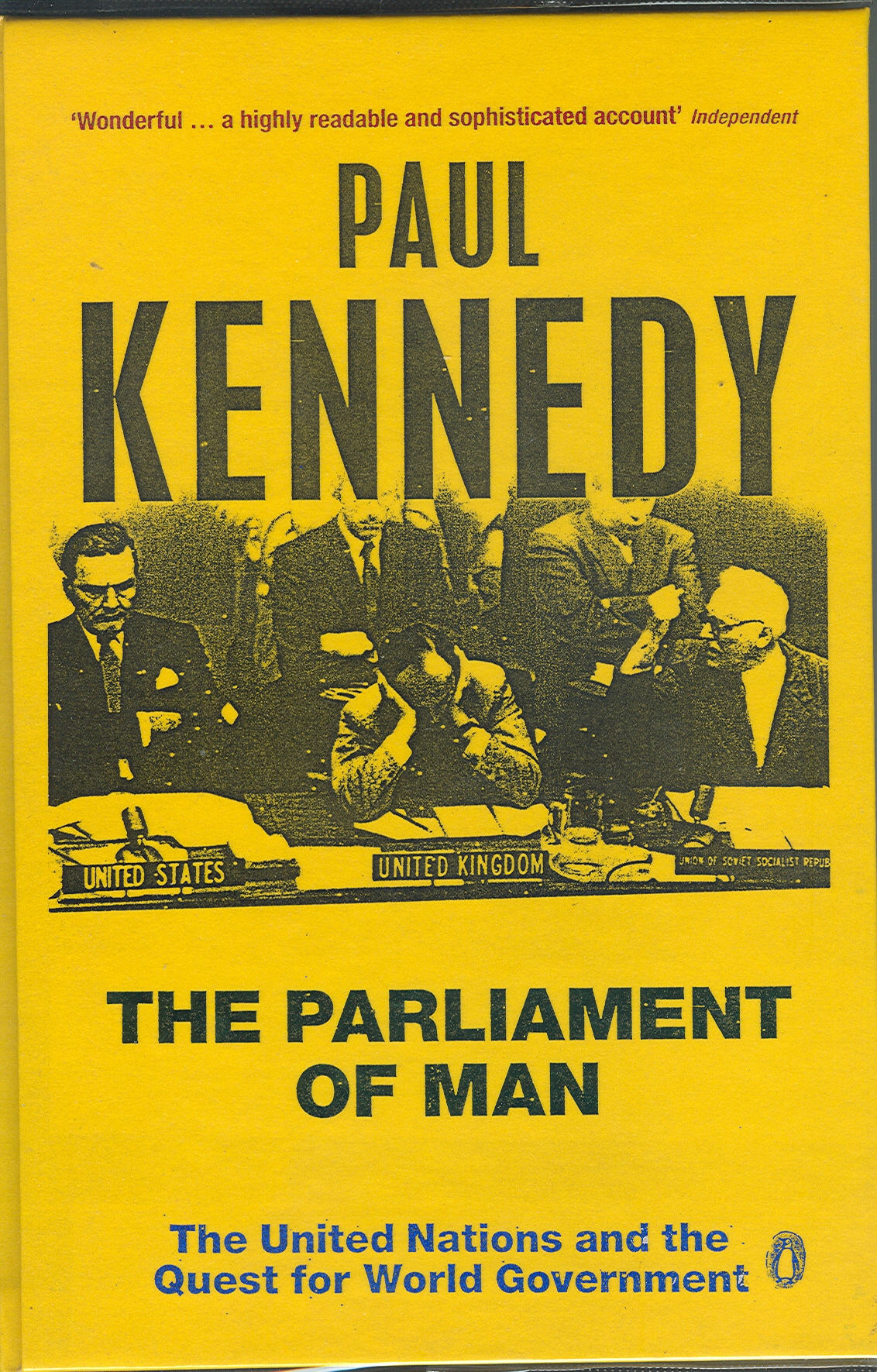
| Judul | Parliament Of Man |
| Pengarang | Kennedy, Paul |
| EDISI | Cet. 1 |
| Penerbitan | England : Penguin Books, 2007 |
| Deskripsi Fisik | xv,341p.;22,5 cm ;22,5 cm |
| ISBN | 9780140285871 |
| Subjek | United Nations - History International relations |
| Abstrak | Paul KIennedy is a professor of Scholar Kennedy gives a thorough history of the United Nations that explains the institution?s roots and functions while also casting an eye on the UN?s effectiveness as a body and on its prospects for success in meeting coming challenges. He makes sense of the commissions and committees, and how the six main operating bodies operate and interact. Citing examples from history, he shows how the five permanent members of the Security Council on numerous occasions overcame political antagonisms to spearhead military supervision of aid in humanitarian crises, and how lack of cooperation among the great powers has hamstrung such initiatives as the control of greenhouse gas emissions and exacerbated the deleterious effects of globalization on developing nations? economies. As a body, the UN emerges here for what it is: fallible, human-based, oftentimes dependent on the whims of powerful nations or the foibles of individual senior administrators, but utterly indispensable.--From publisher description. |
| Catatan | Indeks : Indeks |
| Bahasa | Inggris |
| Bentuk Karya | Tidak ada kode yang sesuai |
| Target Pembaca | Tidak ada kode yang sesuai |
| No Barcode | No. Panggil | Akses | Lokasi | Ketersediaan |
|---|---|---|---|---|
| 00000005771 | 341.222 KEN p | Dapat dipinjam | Perpustakaan Lantai 3 - Mahkamah Konstitusi RI | Tersedia
pesan |
| Tag | Ind1 | Ind2 | Isi |
| 001 | INLIS000000000002512 | ||
| 005 | 20221031094252 | ||
| 008 | 221031################|##########|#eng## | ||
| 020 | # | # | $a 9780140285871 |
| 035 | # | # | $a 0010-0520002512 |
| 041 | $a eng | ||
| 082 | # | # | $a 341.222 |
| 084 | # | # | $a 341.222 KEN p |
| 100 | 0 | # | $a Kennedy, Paul |
| 245 | 1 | # | $a Parliament Of Man |
| 250 | # | # | $a Cet. 1 |
| 260 | # | # | $a England :$b Penguin Books,$c 2007 |
| 300 | # | # | $a xv,341p.;22,5 cm ; $c 22,5 cm |
| 500 | # | # | $a Indeks : Indeks |
| 520 | # | # | $a Paul KIennedy is a professor of Scholar Kennedy gives a thorough history of the United Nations that explains the institution?s roots and functions while also casting an eye on the UN?s effectiveness as a body and on its prospects for success in meeting coming challenges. He makes sense of the commissions and committees, and how the six main operating bodies operate and interact. Citing examples from history, he shows how the five permanent members of the Security Council on numerous occasions overcame political antagonisms to spearhead military supervision of aid in humanitarian crises, and how lack of cooperation among the great powers has hamstrung such initiatives as the control of greenhouse gas emissions and exacerbated the deleterious effects of globalization on developing nations? economies. As a body, the UN emerges here for what it is: fallible, human-based, oftentimes dependent on the whims of powerful nations or the foibles of individual senior administrators, but utterly indispensable.--From publisher description. |
| 650 | 4 | $a International relations | |
| 650 | 4 | $a United Nations - History | |
| 990 | # | # | $a 05771/MKRI-P/IX-2008 |
| 990 | # | # | $a 05771/MKRI-P/IX-2008 |
Content Unduh katalog
Karya Terkait :